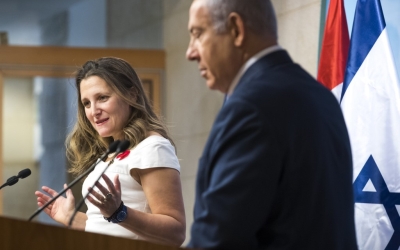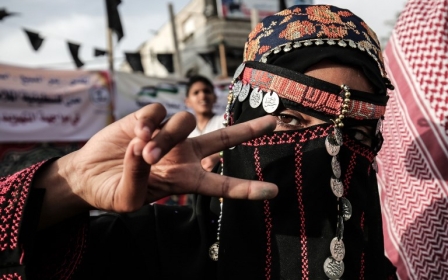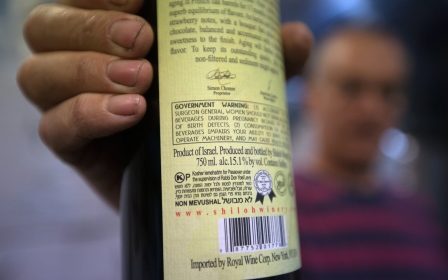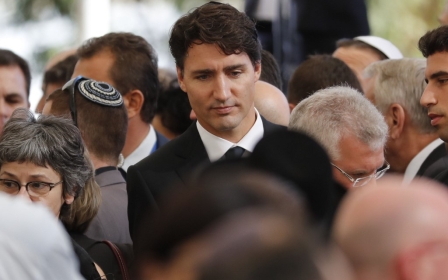Canada must support the ICC's Israeli war crimes probe
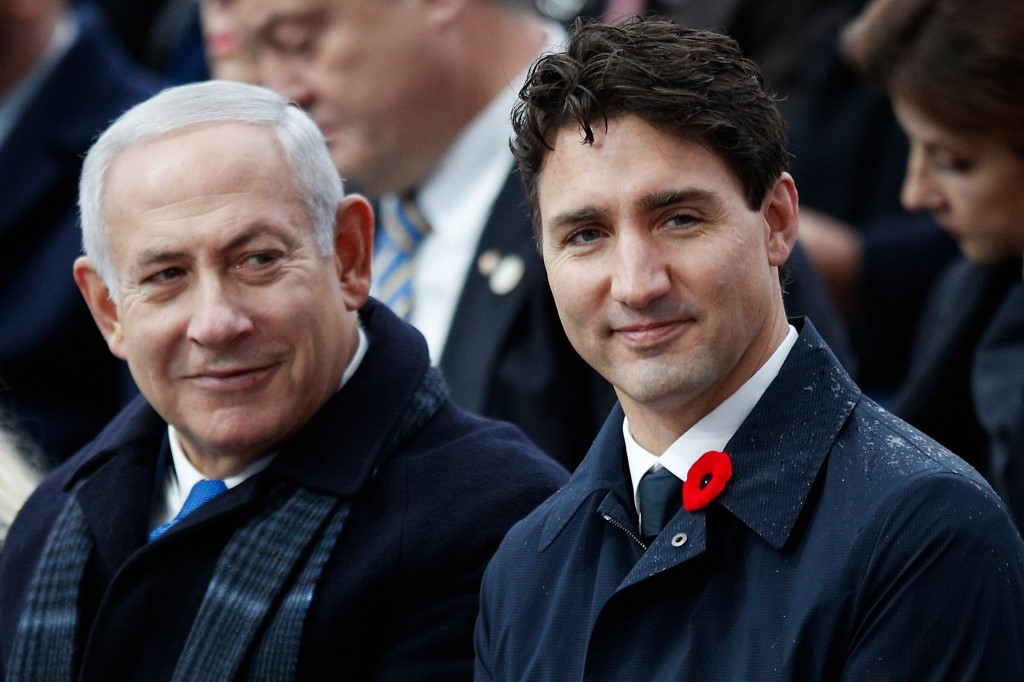
Late last year, Canada backed a United Nations resolution affirming the Palestinian right to self-determination.
The move was widely welcomed as a reversal of Ottawa’s recent voting record at the international body, where it has frequently abstained or voted against motions on Palestinian issues that could be deemed critical of Israel.
But that apparent stand in support of Palestinian rights hasn’t lasted long, as Prime Minister Justin Trudeau’s government last month sent a letter to the International Criminal Court (ICC) telling the UN tribunal that it has no right to investigate alleged Israeli war crimes against Palestinians.
Question of jurisdiction
Just days after the UN vote, the ICC’s chief prosecutor, Fatou Bensouda, said on 20 December that she had a reasonable basis to believe that Israel had committed war crimes in the West Bank and Gaza Strip, and that an investigation should be carried out.
Before that could happen, however, Bensouda asked the court to determine whether it had jurisdiction over the Palestinian areas in question.
Canada appears to be following the dictates of the Israeli government, which has sought to delegitimise the work of the ICC for years
That’s where Canada comes in. It stated in its letter on 14 February “that it does not recognise a Palestinian state”, and therefore Palestine is not subject to international treaties such as the Rome Statute, which governs the ICC’s work.
“In the absence of a Palestinian State, it is Canada’s view that the Court does not have jurisdiction in this matter under international law,” a Canadian foreign ministry spokesperson told MEE in an email late last month, before saying that Canada supports “a comprehensive, just and lasting peace in the Middle East”.
Yet, if Canada truly supports a resolution to the conflict that would bring peace to the region, should it not also support efforts to pressure Israel to end its occupation and rights abuses against Palestinians - the very things that have made peace and justice so elusive?
Netanyahu's involvement
Like so many other countries around the world, platitudes without real action has been Ottawa’s modus operandi for decades in relation to the conflict. In this particular case, Canada appears to be following the dictates of the Israeli government, which has sought to delegitimise the work of the ICC for years amid concerns that it could soon be held accountable there.
In a letter sent on 20 December to his Canadian counterpart, Israeli Prime Minister Benjamin Netanyahu explicitly asked for Canada to “publicly condemn” the ICC prosecutor’s decision to investigate “in light of our special relations and the steadfast friendship between our countries”.
“I urge you to publicly condemn this erroneous decision, to acknowledge there is not a Palestinian state, that the court has no jurisdiction in this matter … and to voice your deep concerns regarding its dangerous ramifications to the court and the region,” Netanyahu wrote, according to The Globe and Mail newspaper, which obtained the letter.
In other words, if you’re a real friend, Canada, do this for me.
Canada’s foreign affairs ministry said it made its stance on the ICC’s jurisdiction clear to the court in 2015 and 2018 and that its February letter was merely “reiterating its position”. But the timing is suspect, and points to the fact that despite all claims to the contrary - or the number of times it votes in favour of Palestinian rights at the UN - Canada is planted firmly in Israel’s corner.
In fact, Canada is among dozens of countries that regularly express concerns over Israel’s human rights abuses, yet do little if anything to hold the Israeli government accountable.
Canada’s reputation as a champion of international law and human rights - while largely rooted in myth - also provides Israel with the cover it needs to continue to exert pressure on the ICC, while maintaining its occupation of the Palestinian territories.
'A crucial opportunity'
In this context, and with the Trump administration in the United States further emboldening Israel’s right-wing politicians to take even more incendiary action against Palestinians, the Israeli government has no real reason to change course.
The ICC remains one of the few forums in the world that can exert both legal and public pressure on Israel. By questioning the court’s jurisdiction - and effectively cutting its legs out from under it - Canada is making it more difficult to hold Israel accountable.
Amnesty International Canada and UN Special Rapporteur Michael Lynk summed it up succinctly in an open letter to Trudeau on 28 February: an ICC investigation “offers a crucial opportunity to break the cycle of impunity for war crimes and paves the way for the many thousands who have suffered,” they wrote.
The letter continues: “The Israeli-Palestinian conflict has been marred by a strong streak of impunity and a deplorable lack of justice … As long as Israel believes that it enjoys impunity from its violations of international law, it will continue to deepen its five-decade-long occupation.”
If Canada stands for human rights and international law as it says it does, it must stop doing Netanyahu’s bidding. It must support the ICC war crimes probe - or at the very least, get out of the way.
The views expressed in this article belong to the author and do not necessarily reflect the editorial policy of Middle East Eye.
Middle East Eye propose une couverture et une analyse indépendantes et incomparables du Moyen-Orient, de l’Afrique du Nord et d’autres régions du monde. Pour en savoir plus sur la reprise de ce contenu et les frais qui s’appliquent, veuillez remplir ce formulaire [en anglais]. Pour en savoir plus sur MEE, cliquez ici [en anglais].




